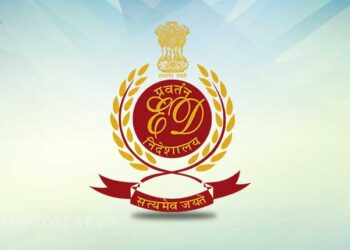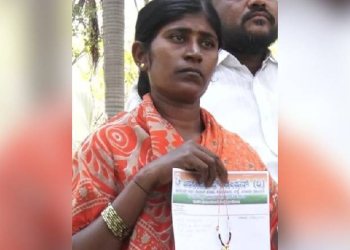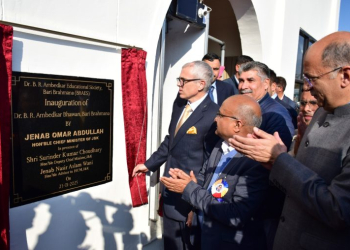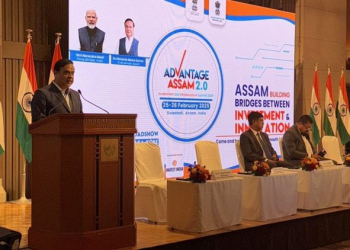New Delhi: India has emerged as a regional power and net security provider in the Indo-Pacific as its capacity to provide humanitarian assistance and disaster relief to its citizens as well as regional partners has grown in recent years, Defence Minister Rajnath Singh said on Tuesday.
Singh asserted that under SAGAR (Security and Growth for All in the Region) envisioned by Prime Minister Narendra Modi, India is cooperating with multiple partners to ensure economic growth and security in the region while tackling threats such as natural disasters.
“We have strengthened multilateral partnerships through engagement via regional mechanisms. This has improved interoperability enabling faster response in crisis situations,” he said while speaking at the multi-agency Humanitarian Assistance and Disaster Relief (HADR) exercise ‘Samanvay 2022’ on Tuesday.
He pointed out that Asia, particularly the Indo-Pacific region, is vulnerable to the impact of climate change, expressing confidence that the participation of national stakeholders with friendly nations in the ‘Samanvay 2022’ will further enhance disaster management capabilities.
He highlighted that prediction of natural disasters has to be accompanied by dissemination of information to a larger population and shifting people to safer locations, which requires an empowered machinery. As nations have different capacities, collaborative preparation to deal with disasters is required, he stressed.
Singh called upon the nations to come together in dealing with natural disasters by sharing resources, equipment and training. In HADR, there is a need to share information for regional cooperation and best practices, he added.
Singh emphasised that harnessing diverse capabilities and using expertise and new technologies enable us to decrease the impact of natural disasters. Noting the increasing frequency of climate-related disasters, he stated that it is essential for HADR teams of different nations to come together on a single platform.
Elaborating on India’s robust HADR mechanism which has effectively provided relief both in India and other nations, the Defence Minister said the ‘Make in India’ initiative of the Government has strengthened this structure.
India’s approach after the formulation of the National Disaster Management Policy has shifted focus from a relief-centric approach to a ‘multi-pronged’ approach including prevention, preparedness, mitigation, response, relief and rehabilitation, he added.
Singh applauded the contribution of the Indian Armed Forces assistance to civil administration during HADR operations and their role in important HADR missions in the Indo-Pacific region, such as Operation Rahat in 2015 and relief operations in Sri Lanka, Nepal, Indonesia, Mozambique, Maldives and Madagascar.
The exercise is being conducted by the Indian Air Force at Agra Air Force Station from November 28-30.
Representatives from ASEAN nations and various national and regional stakeholders involved in Disaster Management including Civil Administration, Armed Forces, National Disaster Management Authority (NDMA), National Institute of Disaster Management (NIDM), NDRF, DRDO, BRO, National Remote Sensing Centre (NRSC) and Indian National Centre for Ocean Information Services are attending the exercise.
Earlier, the Defence Minister attended the capability demonstration events during the exercise, which included an aerial display featuring SU-30 aircraft, transport aircraft and helicopters. He also visited the static display of HADR assets of various organisations, which showcased India’s growing disaster management capabilities. The attendees were enthralled by a demonstration by the Akashganga team.
Chief of Defence Staff General Anil Chauhan, Chief of Air Staff Air Chief Marshal V.R. Chaudhari and other senior civil & military officials were present on the occasion.
(IANS)




















